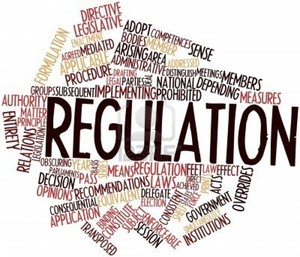The US Assistant Secretary for Planning and Evaluation’s (ASPE) ‘Medicare Part B drugs: trends in spending and utilization 2008-2021’ was published in June 2023 [1]. This outlines aspects of the Inflation Reduction Act (IRA) which is designed to address the rapid rate of increase in Part B drug spending and lower costs for Medicare enrollees.
The publication explains that the IRA intends to change incentives for use of Part B drugs, constrain their rate of spending growth, and lower out-of-pocket costs for Part B enrollees. Specifically, the law provides the following provisions that are relevant for Part B:
Higher Reimbursements for Biosimilars – The IRA increases the ‘add-on’ for certain qualifying biosimilars from six to eight per cent of Average Sales Price (ASP) 5 years starting in October of 2022. It is hoped that greater ASP payment will increase biosimilar adoption and increase competition in the drug market.
Inflation Rebates – Manufacturers of single source drugs and biologicals to pay a rebate to Medicare if the drug’s price increase exceeds the quarterly rate of inflation. The report notes that Part B could have saved nearly US$3.7 billion if this provision was in effect during the three years prior to 2022. This provision took effect for Part B on 1 January 2023. Rebate-eligible drugs are single source drug or biological products that include certain biosimilars administered by physicians through infusion or injection. Some drugs, such as Part B preventive vaccines, are excluded from rebates.
Drug Price Negotiations – The IRA requires Health and Human Services (HHS) to negotiate prices for select drugs on behalf of the Medicare programme. Medicare is authorized to directly negotiate drug prices for certain high expenditure, single source Medicare Part B or Part D drugs (for which there is no generic or biosimilar competition). As was advised in the guidance [2], during the first year of the Medicare Drug Price Negotiation Program, Centres for Medicare & Medicaid Services (CMS) will select up to 10 Part D high expenditure, single source drugs for negotiation. The maximum fair prices that are negotiated for these drugs will apply from early 2026. Then, CMS will select up to an additional 15 Part D drugs for negotiation for 2027 and 2028, and up to an additional 20 Part B or Part D drugs for 2029 and subsequent years. In addition, for 2028, the selected drugs must be among the drugs with the highest total expenditures in Medicare over the most recent year under Part B and Part D and must have been approved or licensed, by the US Food and Drug Administration for at least seven years (small-molecule products) or 11 years (biologicals) at the time of selection. However, some drugs, such as certain orphan drugs and plasma-derived products are excluded.
The publication also highlights that manufacturers of drugs selected for negotiation that do not comply with requirements of the Negotiation Program can be subject to civil penalties and/or excise taxes. However, if certain requirements are met, a manufacturer of a biosimilar may request a delay from selection for negotiation for up to two years.
Overall, the IRA hopes to provide a variety of tools to address the rapid rate of growth in Part B drug spending to benefit the Medicare programme, taxpayers and patients in the US.
Related articles
Medicare drug price negotiation: what next?
Regulating drug prices in Medicare unlikely to lead to ‘revenue targeting’
A small number of drugs account for most of Medicare spending
|
LATIN AMERICAN FORUM
The new section of the ‘Latin American Forum’ on GaBI has been launched. The objective of this new section is to provide you with all the latest news and updates on developments of generic and biosimilar medicines in Latin America in Spanish. View the latest headline article: Actualización de la declaración de posición de GADECCU sobre los biosimilares Browse the news in the Latin American Forum! Register to receive the GaBI Latin American Forum newsletter. Inform colleagues and friends of this new initiative.
FORO LATINOAMERICANO
Se ha lanzado la nueva sección del ‘Foro Latinoamericano’ sobre GaBI. El objetivo de esta nueva sección es brindarle las últimas noticias y actualizaciones sobre desarrollos de medicamentos genéricos y biosimilares en América Latina en español. Ver el último artículo de cabecera: Actualización de la declaración de posición de GADECCU sobre los biosimilares !Explore las noticias en el Foro Latinoamericano! Regístrese para recibir el boletín informativo GaBI Foro Latinoamericano. Informe a colegas y amigos sobre esta nueva iniciativa.
|
References
1. ASPE Medicare Part B drugs:trends in spending and utilization, 2008-2021[homepage on the Internet]. [cited 2023 Jul 24]. Available from: https://aspe.hhs.gov/sites/default/files/documents/fb7f647e32d57ce4672320b61a0a1443/aspe-medicare-part-b-drug-pricing.pdf
2. GaBI Online - Generics and Biosimilars Initiative. New guidance for Medicare Drug Price Negotiation Program [www.gabionline.net]. Mol, Belgium: Pro Pharma Communications International; [cited 2023 Jul 24]. Available from: www.gabionline.net/policies-legislation/new-guidance-for-medicare-drug-price-negotiation-program
Permission granted to reproduce for personal and non-commercial use only. All other reproduction, copy or reprinting of all or part of any ‘Content’ found on this website is strictly prohibited without the prior consent of the publisher. Contact the publisher to obtain permission before redistributing.
Copyright – Unless otherwise stated all contents of this website are © 2023 Pro Pharma Communications International. All Rights Reserved.
Source: GADECCU








 1
1











Post your comment